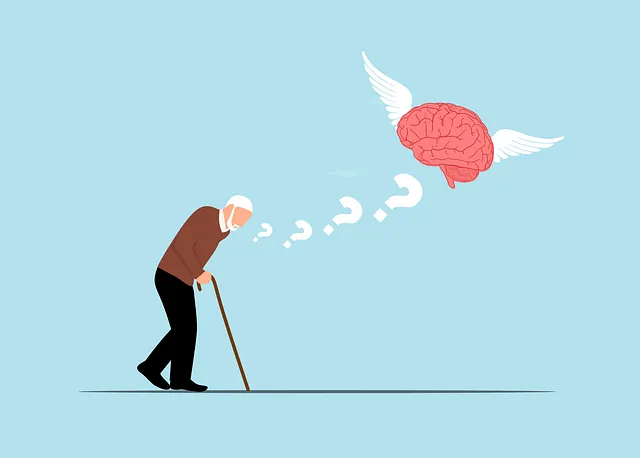Media portrayal significantly impacts public understanding of mental health, with positive depictions fostering empathy and reducing stigma, while negative representations can perpetuate myths and hinder access to care. Kaiser's inpatient mental health services in Lakewood offer specialized care for severe conditions, emphasizing hope and recovery. By promoting authentic narratives and involving individuals with lived experiences, media can reduce mental health stigma and encourage self-care practices. Educational initiatives within media organizations are crucial for accurate representation. Community efforts, including education campaigns and policy analysis, combat stigma and promote access to resources like Kaiser's Lakewood facilities, normalizing conversations about mental health and emphasizing the importance of early stress management techniques.
“Mental illness representation in media significantly influences public perception, often perpetuating stereotypes that contribute to stigma. This article explores how accurate portrayal can enhance mental health awareness and challenge misconceptions prevalent in popular culture. We delve into specific initiatives, like Kaiser’s inpatient mental health services in Lakewood, showcasing progressive approaches to treatment. By examining common stereotypes and implementing effective strategies, we aim to highlight the importance of responsible media representation in fostering understanding and support for individuals facing mental health challenges.”
- Understanding the Impact of Media Portrayal on Mental Health Perception
- Exploring Kaiser's Inpatient Mental Health Services in Lakewood
- Common Stereotypes and Misconceptions about Mental Illness in Popular Culture
- Strategies for Enhancing Accurate Mental Health Representation in Media
- The Role of Education and Awareness Campaigns in Challenging Stigma
Understanding the Impact of Media Portrayal on Mental Health Perception

Media portrayal significantly influences public perception about mental health, shaping attitudes and understanding among audiences. Positive and accurate representation can foster empathy, reduce stigma, and encourage individuals to seek help. Conversely, negative or stereotypical depictions can perpetuate myths, exacerbate stigma, and hinder progress in mental health advocacy. This is especially pertinent when considering access to care, as accurate media portrayal might drive discussions around resources like inpatient mental health services, such as those offered by Kaiser in Lakewood.
Emotional Intelligence and effective communication strategies play a crucial role in navigating these challenges. Media platforms and creators have the power to promote Mental Health Awareness through storytelling that reflects the complexity and diversity of experiences. By incorporating realistic portrayals and showcasing effective Stress Reduction Methods, they can contribute to a more nuanced understanding of mental illness. This, in turn, could encourage open conversations and support systems, ultimately leading to improved access to care for those seeking help, including options like inpatient facilities.
Exploring Kaiser's Inpatient Mental Health Services in Lakewood

In the heart of Lakewood, Kaiser’s inpatient mental health services stand as a beacon of hope and support for individuals grappling with severe mental illness. This specialized care unit offers a comprehensive range of treatments tailored to address diverse psychological needs. From intensive therapy sessions to structured programs focusing on social skills training and self-awareness exercises, patients are provided with the tools necessary to navigate their mental health journeys effectively.
The inpatient facility at Kaiser prioritizes Mental Health Awareness by fostering an environment conducive to healing and recovery. Through individualized care plans, patients engage in therapeutic activities that promote understanding and management of their conditions. This holistic approach ensures that not only are symptoms addressed, but patients also gain valuable skills to cope with daily life challenges, ultimately enhancing their overall well-being.
Common Stereotypes and Misconceptions about Mental Illness in Popular Culture

In popular culture, mental illness is often portrayed through harmful stereotypes that perpetuate misconceptions and stigma. Common depictions in movies, TV shows, and literature frequently depict individuals with mental health conditions as violent, unpredictable, or completely broken, failing to capture the nuanced reality of living with a mental illness. These oversimplified portrayals can lead to a profound misunderstanding of complex disorders, such as depression, anxiety, or schizophrenia. The media’s role in shaping public perception is significant, and when stories lack authenticity or accuracy, it can fuel existing prejudices and discourage individuals from seeking help.
For instance, the portrayal of mental health facilities, like those offered by Kaiser’s inpatient programs in Lakewood, often reinforces the idea that treatment is a last resort, a place for the “uncurable.” In reality, these facilities play a crucial role in providing intensive care and supporting recovery. By presenting more authentic and diverse narratives, media can contribute to mental illness stigma reduction efforts, encouraging empathy and understanding through self-care practices and confidence-boosting initiatives.
Strategies for Enhancing Accurate Mental Health Representation in Media

Media has a significant impact on shaping societal perceptions and understanding of mental health. To foster positive change, it’s crucial to implement strategies that enhance accurate representation in storytelling. One key approach is to involve individuals with lived experiences of mental illness as consultants or contributors during production. This ensures authenticity and challenges stereotypes often perpetuated in media. Additionally, promoting diverse narratives can help broaden audiences’ perspectives; showcasing various cultural backgrounds, gender identities, and unique journeys related to mental health fosters empathy and understanding.
Educational initiatives within media organizations, such as training programs for writers and producers, can also play a vital role. These programs should focus on learning about different mental health conditions, recovery models, and the importance of self-care routine development for better mental health. By integrating these strategies, media platforms can contribute to Mental Health Awareness while employing Empathy Building Strategies that promote more nuanced and respectful portrayals of individuals navigating their mental health journeys, even in fictional settings.
The Role of Education and Awareness Campaigns in Challenging Stigma

Education and awareness campaigns play a pivotal role in challenging the stigma surrounding mental illness, especially in communities like Lakewood where access to resources, such as those provided by Kaiser’s inpatient mental health services, is crucial. These initiatives aim to normalize conversations about mental health, fostering an environment where individuals feel comfortable seeking help without fear of judgment or discrimination. By integrating empathy-building strategies into these campaigns, the public can develop a deeper understanding of various mental health conditions and the unique challenges faced by those affected.
Through comprehensive Mental Health Policy Analysis and Advocacy, communities can push for more inclusive healthcare systems that prioritize mental well-being. This includes promoting evidence-based practices, improving access to treatment options like Kaiser’s inpatient facilities, and ensuring cultural sensitivity in care delivery. Additionally, integrating Stress Management techniques into educational programs can empower individuals to recognize early signs of distress and offer support, ultimately reducing the impact of stigma on those seeking mental health services.
Mental illness representation in media is a powerful tool that can either perpetuate harmful stereotypes or challenge stigma. As evidenced by our exploration of Kaiser’s inpatient mental health services in Lakewood, accurate and nuanced portrayals can significantly impact public perception. By implementing strategies to enhance mental health representation, such as education campaigns, we can foster understanding and create a more inclusive society. Recognizing the common misconceptions in popular culture is essential, and media has the potential to revolutionize how we discuss mental health, ensuring that those affected receive the support and care they deserve.






